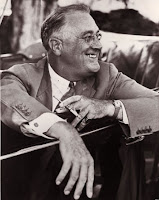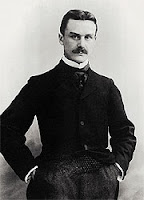With her fourth studio album, Blue, released 50 years ago this month, Joni Mitchell pushed against the conventional boundaries of the burgeoning singer-songwriter movement.
She would explore new musical textures through the end
of the decade in LPs such as Court and Spark, The Hissing of Summer
Lawns and Mingus. But I don’t think Mitchell was more daring than
she was when she poured out her anxiety, depression and fears about the costs
of her total artistic commitment.
Commercial success was not her goal with this release,
and in any case it would not come until Court and Spark three years
later. (The major single, “Carey,” rose no higher than #93 on the Billboard
charts.) But the astonished awe of her contemporaries arose rapidly. Over the years, they—and the following two
generations of musicians—have covered virtually all the songs in this
collection.
Fragile, even depressed, over the increased expectations
placed on her by fans, critics and her music company, in addition to ennui over
balancing relationships against creative freedom, Mitchell sought an acoustic
safe place—A&M Studio in Hollywood, where she was accompanied by only a handful
of trusted musicians, including Russ Kunkel (drums and percussion), Stephen
Stills, and James Taylor, with whom she had had a passionate affair in the
summer of 1970.
From these often spare aural textures from piano,
guitar and Appalachian dulcimer, lyrics emerged unsparing in their emotional
honesty. One admirer, singer-songwriter Kris Kristofferson—himself no stranger
to hard self-examination in tunes like “Sunday Morning Coming Down” and “Help
Me Make It Through the Night”—cautioned her about too much public exposure,
urging her to “save something for yourself.”
Among the few things she may have saved for herself—at
least at the time—were the identities of males who figured romantically in her
life to that point, including Taylor, ex-husband Chuck Mitchell, Graham Nash,
and Leonard Cohen.
But the most daring subject—one she had been unable to
address on prior albums, because of the ferocious pain involved—was her
decision to give up for adoption the baby girl she had out of wedlock before
her relationship with Chuck Mitchell. “Little Green” dealt with her hopes for
the girl’s future—and the lingering ambivalence that Mitchell (so young at the
time she thought of herself as a “child with a child pretending”) felt about
her decision:
There'll be crocuses to bring to school tomorrow
Just a little green
Like the nights when the northern lights perform
There'll be icicles and birthday clothes
And sometimes there'll be sorrow.
Inevitably, the songs are less affirmative anthems than arrivals at a tentative musical equilibrium. In “The Last Time I Saw Richard,” she depicts the creative death-in-life of the male who had warned her that “all romantics meet the same fate someday” (Richard “drinks at home now most nights with the TV on/And all the house lights left up bright”), but her own resolve to push on against the odds is darkened by uncertainty (“Only a dark cocoon before I get my gorgeous wings/And I fly away/Only a phase, these dark cafe days”).
In recent years, the song that may have received the most airplay, particularly during the Christmas season, has been “River.” The initial invocation of a festive season (a few bars of “Jingle Bells” on the piano, the mention of cut trees and reindeer) before long gives way to Mitchell’s deep melancholy over rejecting a marriage proposal by a lover (“Oh, I’m so hard to handle, I’m selfish and I’m sad”). It has become the holiday theme song for everyone unable to summon a sense of joy in the season, for whatever reason.
With time, I have come to regard “A Case of You” as my own favorite song from the album, in no small part from Diana Krall’s stunning rendition of it in her Live in Paris LP. (Hear it for yourself on this YouTube clip.) But many other singers have covered it, too, including Aoife O'Donovan, Tori Amos, Betty Buckley, Phoebe Snow, Nancy Wilson, Jane Monheit, k.d. lang, and most unusually, Prince, just before his Purple Rain tour.
Decades after its release, according to Sheila Weller’s
collective biography of Mitchell, Carly Simon and Carole King, Girls Like Us, a pair of female fans told Mitchell, “You were our Prozac.”
That kind of comment had the kind of outsized fan reaction that had made Mitchell
anxious so many years before.
More recently, however, with the 50th
anniversary of Blue, Mitchell has come to value the fact that so many ordinary
people have found comfort in her masterpiece. “When it was first released, it
fell heir to a lot of criticism,” she noted in a recent video. “So, 50 years
later, people finally get it, and that pleases me. Thank you.”
One of the many musicians influenced by the album was Jewel, who, in a tribute to Mitchell for Rolling Stone’s 2011 ranking of “The 100 Greatest Artists of All Time,” commented on the artistic process behind her idol’s confessions:
“I could tell that Joni was a painter by the way she wrote lyrics. She describes smells and sounds and uses fewer words to transmit more feeling. Her melodies are about shapes. The singing lines are slow, steep plateaus. One of the things I learned from Joni: If you can tell the story and keep things moving, you don't need to return to the chorus on time.”
(Even the image accompanying this post—obviously, the
cover of the classic album—marked something of a departure for Mitchell. Her
three previous LPs—Song to a Seagull, Clouds and Ladies of The
Canyon—featured Mitchell’s own paintings. In contrast, Blue contained a
photograph of the singer by Tim Considine—by this time in the early 1970s,
making his mark as a photographer, but better known to baby boomers as oldest
son Mike Douglas on the Sixties sitcom My Three Sons.)




























